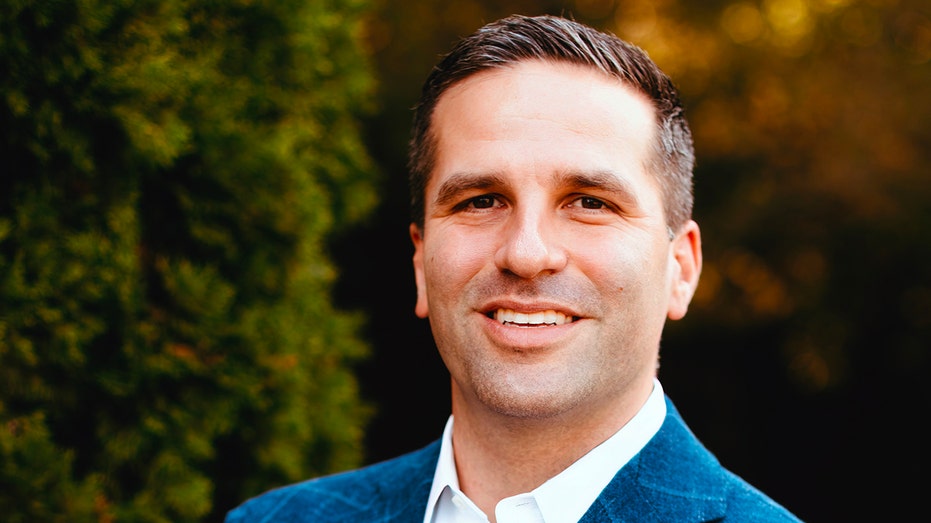Thinking of quitting your job? Maybe try 'reinventing' yourself at work first
Senior executive in financial services industry and author John Coleman shared today's biggest job challenges
Hybrid workplace will remain standard: Okta CEO
Okta CEO and co-founder Todd McKinnon has a prediction tied to work from home extensions amid omicron variant.
More than 70% of workers said they regretted quitting their jobs, as Fox Business reported recently about a survey connected to the so-called "Great Resignation."
John Coleman, an Atlanta-based senior executive in the financial services industry, has studied the workplace and written about it extensively for Harvard Business Review and elsewhere. He said this recent statistic "doesn't surprise me."
70% OF WORKERS REGRET QUITTING THEIR JOBS
In an interview with Fox News Digital, Coleman pointed out, "One of my pushes for people [who are contemplating a job change] is to be sure that they're leaving for something, not just leaving from something."
"Many people leave a job in haste only to find that they changed their external circumstances to solve an internal problem."
In today's post-pandemic, often-hybrid workplace, this is an important distinction to be aware of, said Coleman, the author of a new book, "The HBR Guide to Crafting Your Purpose" (January 2022).
"Many people leave a job in haste only to find that they changed their external circumstances in order to solve an internal problem," he said.
"They abandoned a professional environment without doing the hard, internal work to understand what would really give them greater meaning and greater happiness in their job," he added.

John Coleman, based in Atlanta, is author of "The HBR Guide to Crafting Your Purpose" (Jan. 2022). He said many people "leave a job in haste only to find that they changed their external circumstances to solve an internal problem." (Courtesy John Coleman / Fox News)
It's that meaning and happiness that is more important within a fulfilling life than many people acknowledge, he said.
Coleman said that "once people have decided they want to leave, they're actually liberated to reimagine and craft their existing work to be more meaningful for them," he noted.
"At worst, it doesn't work — and you leave anyway," he continued.
10 SIGNS YOU SHOULD PROBABLY QUIT YOUR JOB
"At best, it allows you to refresh your professional life without all the attendant risks and disruptions of leaving a job."
He said as well, "I really do think people act in haste in leaving jobs before they've fully thought it through."
Ask yourself: "How do I feel at the start of my work day?"
In a wide-ranging discussion about today's workplace and its unique challenges — including the importance of finding purpose in one's work, no matter the industry or field of expertise — Coleman shared tips for evaluating a work environment before making a dramatic job leap.
He shared other solid advice as well.
Key questions to ponder before saying, ‘I quit’
When evaluating whether to leave a particular job for new opportunities elsewhere, Coleman said people should ask themselves some very important questions.
Among those: "How do I feel at the start of my work day?"
If people find themselves repeatedly "wanting to avoid" their job because "of exhaustion, burnout, dread" or other reasons — that's something to pay close attention to, for sure, he indicated.

Is your work "interfering with your personal time and space" in a big way? John Coleman said this is a key question to answer when evaluating job moves.
Also, he said, do you make excuses for not wanting to get things done in a timely manner?
In addition, do you feel your work is "interfering with your personal time and space" in a big way? (Are you not sleeping well because of your work? Are you feeling continuing anxiety because of your work?)
And, finally, do you feel colleagues and teammates have been sharing bad or negative ethical habits that you yourself are now actually starting to mimic?
"Particularly during these COVID times, there's been such a mix of experiences for people" at work.
Coleman said that if and when people recognize they're starting to "cross the line" ethically or morally into poor habits because of bad examples set by those around them — that's a "huge red flag" to recognize and take actions to correct.
HERE ARE THE BEST JOBS FOR 2022
He advised that in "toxic work environments" such as these, people can find themselves slipping into negative behaviors they never intended or practiced before.
"People need to be attuned to these things," he said. It's quite easy, "when you're trying to maintain stability [in your life], when you're trying to preserve a sense of financial responsibility," and so on, to lose track of what really matters and what sort of environment you're willing to tolerate (or not) in your work life.

A young businessman is shown looking less than thrilled during a late night at work. Coleman said those contemplating job changes should first do the "hard, internal work" aimed at finding greater meaning at work.
All of the above, he indicated — including mentally, emotionally or physically unhealthy workplaces — are important signs to take note of when evaluating a job change.
Key ways to find your ‘purpose’ in life
Coleman shared how vital is it to find meaning and purpose in one's job or type of work to feel fulfilled and productive.
"Particularly during these COVID times, there's been such a mix of experiences for people" at work, said Coleman.
ODDS OF US RECESSION 'MUCH HIGHER’ THAN A YEAR AGO
The first tip for taking stock, he said, is this: "Shifting our mindset to one of service to others" is really important for feeling a sense of purpose in our work, no matter what type of career we have or work we do.
Second: Investing in positive relationships in the workplace is important, too.
The "unstructured time" in which a younger worker can watch his or her boss and learn from that person is key.
"The social science is clear that much of the joy in life comes from the depth and breadth of positive relationships" — which includes interactions in the workplace.
He said people tend to forget how important those are, especially in remote work situations. "Building those very positive relationships at work is one of the most meaning-inspired things you can take on," he said.
Third: Look for opportunities for mentorship and apprenticeship at work.

A restaurant manager is shown making new suggestions to employees. "Building positive relationships" plus finding mentors at work is key, said John Coleman. (iStock)
"In a fully remote work environment today," said Coleman, "companies have to be very, very careful about making sure they're creating opportunities for senior employees to mentor and train younger and more junior employees. There should be a focus on that among the senior group."
Otherwise, companies or organizations can lose the ability to "really advance their own talent and to develop their own people."
HOW TO NEGOTIATE YOUR SALARY, ACCORDING TO AN EXPERT
He said the "unstructured time" in which a younger worker can watch his or her boss and learn from that person is key.
He also pointed out that "purpose" in a work environment isn't necessarily a single thing — often, it's multi-pronged. Also, a person's "purpose over time can shift," which is very natural and expected over the span of years.
And finally, on the topic of purpose, he said that "purpose" isn't simply something you find — often, it's something "you build yourself."

A businesswoman talks to colleagues during a video conference. "The first job you get after college is not often the job you'll end up in," said Coleman, author of "The HBR Guide to Crafting Your Purpose."
Coleman also made special note of the tendency of young people coming up in the world of work to jump around pretty frequently.
"Some element of experimenting with a job is OK," he said, "and in some ways, it's part of the world we live in. The first job you get after college is not often the job you'll end up in. That's not a cause for anxiety."
It should be "freeing," he said, in the sense of having the time and opportunity to explore a bit.
"I encourage young employees to think about craft — and how they create community at work, how they surround themselves with mentors."
"What I think can become dangerous," he said, "is when people get addicted to that exploration and never settle into something where they can really develop a deep commitment to the craft of their work — and discover what they're good at and where they can really make a contribution in the world."
CLICK HERE TO READ MORE ON FOX BUSINESS
That, he says, takes more than a year or two.
He also stressed the importance of being able to "create a really meaningful community" in that field of work.
"Positive relationships [at work] can help [young people] build community and create some attachment over time."
"Community is not really built in a year. So I would encourage young employees to really think about craft — and how they create community at work, how they surround themselves with long-term mentors. That often only happens in a longer-term commitment to a workplace."
On the company side, said Coleman, "there's got to be some acknowledgment that the world has changed. This is no longer the time of General Motors in the 1950s, for example … Some of that means creating a workplace in which companies acknowledge that young people may be in and out a bit more [than among previous generations]."
GET FOX BUSINESS ON THE GO BY CLICKING HERE
He added, "The way to retain those people, first, is in recruiting — and in understanding that many young people are motivated by a sense of purpose, rather than just money or experience. Second, surround them with positive relationships that can help them build community and create some attachment over time."
John Coleman's website is johnwilliamcoleman.com; his work has been featured in Forbes, the Financial Times, the LA Times and other publications.




















